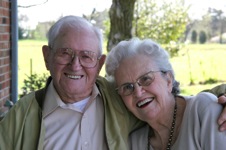In the best of all possible scenarios a case of Lyme is diagnosed quickly, treated thoroughly, and the patient is healed. However, the challenge of diagnosing and treating Lyme often leaves patients requiring further help. Many people feel confused, angry and frustrated to be left in this position.
100 Perspectives includes all our reporting since the LDRD began in 2005. That's five year's-worth of perspectives on Lyme prevention, diagnosis and treatments, in both allopathic medicine and alternative therapies.

Will you find everything that's ever been written about Lyme disease here? No. However, you won't find much speculation here. We interview reliable sources directly, including ILADS doctors and others who are researching, treating and beating Lyme. We encourage you to investigate, do your own research and find the treatment that works for you. 100 Perspectives is intended as a well-organized starting point.
What makes this approach different? Lyme is a complex disease. Simply getting a positive diagnosis can feel nearly impossible because of Lyme's ability to mimic hundreds of other conditions.
Once a diagnosis is determined, treatment can begin. However, current diagnostic tests are unreliable. Your choice of treatments adds another layer of complexity, mainly because there are two different standards of care set by two different professional medical organizations, the IDSA and ILADS. Doctors are divided contentiously about which treatment should be administered and for what duration.
All the squabbling can make a bad situation seem worse. If you have Lyme, all you want is to get on with treatment and get your life back.
This is where 100 Perspectives comes in. 100 Perspectives presents the complexities of Lyme disease in an elegant framework made up of four sections.
This framework makes it easier to see the big picture and yet not lose sight of the details. Think of it as an organizing lens through which to examine all the facets of the disease. It can help you discover ways to be more effective in your treatment.
100 Perspectives shows how all aspects of the illness interact, not simply the experience of dealing with the physical and neurological symptoms, but also how your actions are influenced by other fundamental dimensions of the disease, such as:
This framework evolved as a result of our discoveries after reporting on this disease over the past five years. We put it together because we are also living with Lyme. Like you, this illness has raked us over the coals. We've swung the gamut of emotional responses, and not just to the disease itself. We've also struggled to understand why it is so difficult to get answers to our questions and to locate appropriate resources.
What is a typical approach to treating Lyme? Every approach to dealing with Lyme that we have encountered comes from one primary perspective and reduces the other essential perspectives.
Integrating the different approaches into one whole system can help you answer questions such as:
Consider these opposing ideas and approaches:
Is it always necessary to place these views, organizations or approaches in opposition to each other? No, it is not. All these perspectives are important and can be used to create a truly integral approach to treating Lyme.
 Does your doctor understand Lyme and its co-infections?
In our research we've discovered that misdiagnoses are rampant. Otherwise-excellent doctors who lack knowledge and/or experience with Lyme disease often miss the signals.
Does your doctor understand Lyme and its co-infections?
In our research we've discovered that misdiagnoses are rampant. Otherwise-excellent doctors who lack knowledge and/or experience with Lyme disease often miss the signals.
Who is featured?
Cross-training
In our experience, the only truly effective way to beat Lyme is to educate yourself and take a course of action that empowers you to heal. All areas of your life affect your healing -- your experience, your behavior, your community and the social systems where resources can be found. We like to use a sports analogy to describe this approach: Cross-training. Returning to health takes the kind of commitment that professional athletes apply to achieving self-mastery. We advocate that the most comprehensive way to heal from Lyme is to integrate as many approaches as you can that work for you.
$35.00
(One Time Fee)
Receive the 100 Perspectives for free with the Premier Discount
100 Perspectives includes all our reporting since the LDRD began in 2005. That's five year's-worth of perspectives on Lyme prevention, diagnosis and treatments, in both allopathic medicine and alternative therapies.

Will you find everything that's ever been written about Lyme disease here? No. However, you won't find much speculation here. We interview reliable sources directly, including ILADS doctors and others who are researching, treating and beating Lyme. We encourage you to investigate, do your own research and find the treatment that works for you. 100 Perspectives is intended as a well-organized starting point.
What makes this approach different? Lyme is a complex disease. Simply getting a positive diagnosis can feel nearly impossible because of Lyme's ability to mimic hundreds of other conditions.
Once a diagnosis is determined, treatment can begin. However, current diagnostic tests are unreliable. Your choice of treatments adds another layer of complexity, mainly because there are two different standards of care set by two different professional medical organizations, the IDSA and ILADS. Doctors are divided contentiously about which treatment should be administered and for what duration.
All the squabbling can make a bad situation seem worse. If you have Lyme, all you want is to get on with treatment and get your life back.
This is where 100 Perspectives comes in. 100 Perspectives presents the complexities of Lyme disease in an elegant framework made up of four sections.
This framework makes it easier to see the big picture and yet not lose sight of the details. Think of it as an organizing lens through which to examine all the facets of the disease. It can help you discover ways to be more effective in your treatment.
100 Perspectives shows how all aspects of the illness interact, not simply the experience of dealing with the physical and neurological symptoms, but also how your actions are influenced by other fundamental dimensions of the disease, such as:

- your choice of treatment or therapies
- your ability to access resources
- cultural views toward Lyme
This framework evolved as a result of our discoveries after reporting on this disease over the past five years. We put it together because we are also living with Lyme. Like you, this illness has raked us over the coals. We've swung the gamut of emotional responses, and not just to the disease itself. We've also struggled to understand why it is so difficult to get answers to our questions and to locate appropriate resources.
What is a typical approach to treating Lyme? Every approach to dealing with Lyme that we have encountered comes from one primary perspective and reduces the other essential perspectives.
Integrating the different approaches into one whole system can help you answer questions such as:
- Is herxing always necessary?
- Can I look at the problems of Lyme disease without feeling as though I'm choosing sides in a war?
- Can I include seemingly-opposing viewpoints, and get relief from Lyme?
Consider these opposing ideas and approaches:
- Natural vs. Allopathic
- Herbs vs. Antibiotics
- Mainstream vs. Alternative
- Doctors vs. Patients
- Western vs. Eastern
- IDSA vs. ILADS
Is it always necessary to place these views, organizations or approaches in opposition to each other? No, it is not. All these perspectives are important and can be used to create a truly integral approach to treating Lyme.

- If you treat Lyme with herbal or pharmaceutical medicines yet you choose not to exercise and you eat excessive amounts of sugar, are you undermining the effectiveness of the herbs or medicines? Yes.
- If you take antibiotics and do not supplement with nutritional support, are you putting yourself at risk for other problems? Yes.
- How is your choice of treatment affected if you don't have health insurance? On the other hand, how does having health insurance influence your choice of treatments? Have you been coerced into following a protocol you would not have chosen?
Who is featured?
- Dr. Raphael Stricker, President of ILADS 2005 - 2007
- Alan Mcdonald M.D., Pathologist
- Ginger Savely, Nurse Practitioner and psychologist
- Stephen Harrod Buhner, Naturopath and herbologist
- Eva Sapi, Ph.D, Research scholar
- W. Lee Cowden M.D., Lyme expert
- Tina Garcia, Patient advocate
- And more
- Learn how you can integrate the most effective treatments and supporting therapies.
- Learn why a single approach can be limiting. Why you should not take one person's opinion and apply it as a strategy.
- Learn why a Western medicine approach alone is not likely to save you any time soon.
- Learn how Lyme radically differs from other diseases.
Cross-training
In our experience, the only truly effective way to beat Lyme is to educate yourself and take a course of action that empowers you to heal. All areas of your life affect your healing -- your experience, your behavior, your community and the social systems where resources can be found. We like to use a sports analogy to describe this approach: Cross-training. Returning to health takes the kind of commitment that professional athletes apply to achieving self-mastery. We advocate that the most comprehensive way to heal from Lyme is to integrate as many approaches as you can that work for you.
$35.00
(One Time Fee)
Receive the 100 Perspectives for free with the Premier Discount
100 Perspectives on Lyme
What it is.
Immediate access without joining as a member. Includes five years of independent reporting conducted by the LDRD. A unique approach to beating chronic Lyme or post-Lyme disorders.
Who it is intended for. 100 Perspectives is meant for those who want immediate access to the most cutting-edge information on Lyme Disease. Further, if you're confused about the different opinions and attitudes towards Lyme, we want you to take heart. There is a way to make sense of it all. The disease can drag you through hell and is often very difficult to treat. However, many people have succeeded and gone on to live healthy post-Lyme lives.
Who it is intended for. 100 Perspectives is meant for those who want immediate access to the most cutting-edge information on Lyme Disease. Further, if you're confused about the different opinions and attitudes towards Lyme, we want you to take heart. There is a way to make sense of it all. The disease can drag you through hell and is often very difficult to treat. However, many people have succeeded and gone on to live healthy post-Lyme lives.




